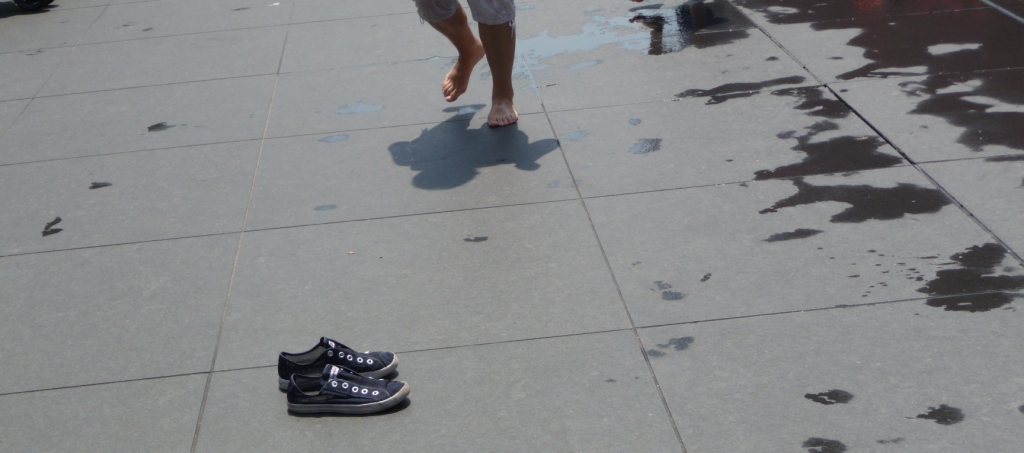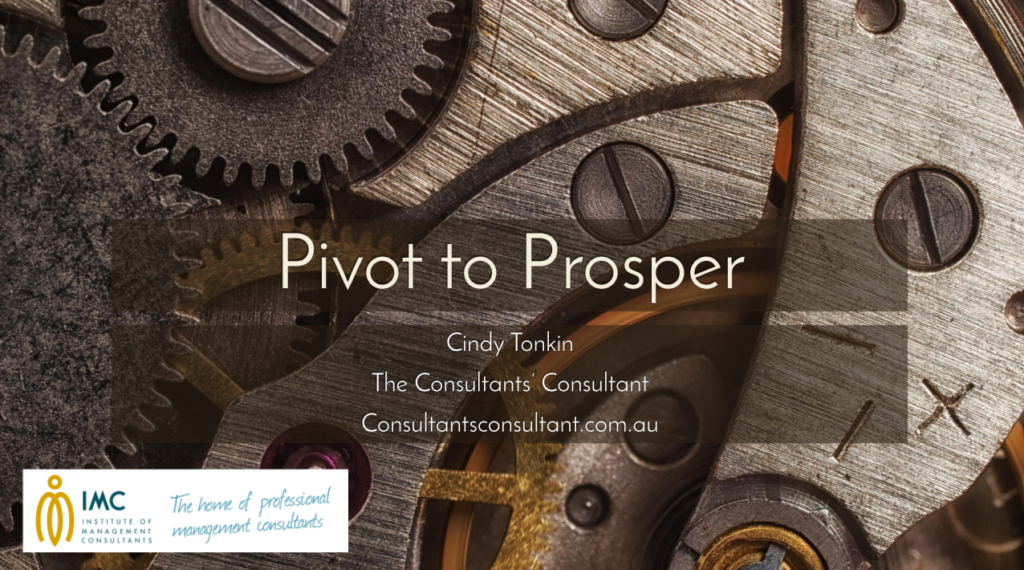

Chris Carr is my guest today. He has spent a long career in the analytics space in financial services. Here’s his linked in profile.
Find the podcast on
Chris Carr was voted one of the top 10 leaders in Analytics by IAPA in 2018.
He speaks about:
- the variety and interest that comes with working in a larger organisation (and being a bit of a sticky beak)
- the “we’ve got data, let’s do something with it” problem
- His bent towards “exposure” on the Exposure – Education – Experience idea (70/20/10) and his method for researching through people (what he calls “self-researchers”
- his preferences for recruiting and a growing feeling that “If I had to start from scratch I wouldn’t start with analysts”
- why he calls himself an analytics professional
- the kinds of questions he doesn’t ask when he recruits (and the answers he’s looking for)
- the need to keep sight of the end stage which is a decision
- why scoping well is a time saver
- the difficulty of beautiful dashboards
- how he structures his day (newsflash: being at work early isn’t compulsory)
- how he keeps up to date on what his teams are up to, how he builds team and learns at the same time
- which meeting is the most attended meeting for his team each week?
- his realisation about how hard he may have been to manage in his early career
- why you can’t learn everything from a book
- his favourite charity is the Heart Foundation
Some links for Chris Carr’s podcast
Why it’s a hassle that Internal consultants are perceived as “free” to their stakeholders, and what it means you need to know how to do.
My cardiologist tells me it’s in sight that no one will die of heart disease: the Polypill and here as well.
I mention
who have both appeared on this podcast.
Chris Carr – Transcript
Chris Carr builds analytics capability in a large Financial Services organisation.
To see a summary of the podcast episode, go here. This is a transcript of the entire thing.
Cindy Tonkin: (00:07) Hi there. This is Cindy Tonkin I’m the consultant’s consultant. I work with data science teams, helping them work even smarter, faster and nicer. If you’re brilliant and you want to be even better. This is the podcast for you.
Cindy Tonkin: (00:26) My guest today is Chris Carr, who is one of the best people in analytics I know of. We’ve been working together in your different capacities since 2008 or 9?
Chris Carr: (00:48) Yes, it has been a while. It’s been a long time in the industry.

Chris’s journey
Cindy Tonkin: (01:05) You were working in finance and then you went out and worked in a couple of other industries and came back to finance. More interesting, more predictable?
Chris Carr: (01:12) Thankfully. Yes. The latter was one of the main drivers. I found when I went back in that there was a lot of variety and interest in there as well. I came to understand that you could stay in a larger organisation and get a variety of learning opportunities. It was good learning. I certainly feel very comfortable in the financial services space.
I came to understand that you could stay in a larger organisation and get a variety of learning opportunities.
Cindy Tonkin: (01:57) They got a lot o’ data. And they know that they need to use it.
Chris Carr: (01:58) Yeah. It’s a classic thing, isn’t it? When you’re in the industry, you fall back on ideas that our data’s not good enough and we’re not using it enough. Then you chat to someone in some other industry, and all the messaging back is that banks have got it sorted, they’re actually using it properly
Cindy Tonkin: (02:18) Banks were the first ones to start really properly using data analytics – right?
Chris Carr: (02:23) Yes, absolutely. Driven by the fact that they had a lot, and they had the money to do it too. It was inherent in the way that they did things. People who are savvy with numbers from the finance perspective, arguably you could say, a lot of analytics came out of that space. Accountants who wanted to take a deep look and understand things better, understand the drivers behind their P and L’s. Banks obviously at the forefront.
Cindy Tonkin: (02:52) Data needs to start moving more into the HR space now. A lot of HR people are saying to me we can’t move without data.Where is analytics, not gone yet? Is there somewhere there’s a gap?
Chris Carr: (03:04) It’s a great question. It’s a good point. HR analytics is taking off and it’s a good example of where I think it was just an area where people start to bother it to capture information. So as we digitized our HR information and got off paper, it just became an obvious place to start looking. So it’s just that transition.

Using Data
Is there anywhere where it’s not being used now? I think that is less of an issue now because people can bring devices along now. So again, banks had analytics because they had the technology and the systems. So it was generating data. Well, just about any device that we have now generates started. You’ve got many more opportunities to get to it now.
Chris Carr: (03:57) So are there places where it’s not being used? I think the biggest gap there is whether you know how to leverage the technology to get the information. And frankly, I’m probably not that good at that.
Maybe we’re a bit lazy in a financial services organization because we’re used to having the data come to us. We draw a line there and go, I’ve got all this data in a very nice platform and now I’m going to start doing my analytics.
In financial services… we’re used to having the data come to us… many organizations are still grappling with “how do I get the data?”
Where many organizations are still grappling with, how do I get the data? And again, when I stepped out of banking and went into consulting in both media and just general consulting, it was difficult for me to step back and go, I’m actually just dealing with a “we’ve got data and let’s do something with it” a problem.
Chris Carr: (04:51) I’m used to being in “we’ve got data and I’m trying to do something quite complex with heavy decision making”. So probably the reason why I wasn’t very good at the consulting gigs. My brain just wasn’t there. I didn’t see the value that organizations who had nothing could see out of what I consider to be quite basic information or basic insights.
Whereas the sales guys in these organizations were exceptional and going, “I know that you don’t think this is very interesting, but they don’t have it and we’re able to charge a lot of money for it”.
And I just was never able to translate into that space. It was good learning. We may be a little bit well looked after in the financial services industry in terms of a plethora of data.
Cindy Tonkin: (05:47) Talk to me about you. So we’ve talked a bit about your career, but how do you work smarter? What do you do to keep yourself in top form, brain, mind, healthy wealthy wise?

What makes for Smarter data people
Chris Carr: (06:01) I think there’s a recurring theme for me, that I actually don’t go and do all this sort of external research type thing. I have just struggled a bit to go “How do I keep up with stuff?”
I’m not a regular attendee of forums and conferences and all these kind of stuff. But then again, I find when I do tap into these things, I feel like I am constantly able to speak about what’s happening in the world.
And again, I’ll bring that back to, the benefit of working in a large organisation is there’s so much going on. If you’re even a little bit of a sticky beak – and I’m a lot of a sticky beak – you just go and find stuff out. So how I keep up with stuff is coffee chats and stuff like that.
Chris Carr: (06:56) Conversations that come up just trigger something. I chase two out of the ten things I hear. But those two things often escalate into, “Oh wow, I’m taking to this thing now”. Didn’t even know it existed. I’m going to get back to my team and say, why aren’t we doing this?
I chase two out of the ten things I hear. But those two things often escalate into, “Oh wow, I’m taking to this thing now”.
And the good thing generally in my team is that someone goes, “actually, I know quite a lot about that”. And obviously I’ll just go, “fantastic, let’s move on”. So how do I keep up with things – that’s probably the way.

Education Exposure Experience
Cindy Tonkin: (7:32) So thats three Es that they talk about – Education, Exposure and Experience. What you’re basically saying is exposure is teaching you an awful lot and then you get your education from other people. So it doesn’t have to be a YouTube channel. It could be a colleague or somebody who works in your team.
Chris Car: (7:53) Yes. Specifically when I take the time to think about my behaviours, me going to YouTube or internet site where it’s listed as this is how you do stuff – I’m just instantly dyslexic. It doesn’t make sense to me.
What I do is go to five different people and go, how do you do this? And then I synthesize that stuff down and at the end of that, I’ll feel like I’m at least 80% as competent as any of the five people I talked about with it. Because I can blend the experience in me.
It appears to be exactly opposite of the bunch of people who I am starting to admire quite a lot. The people that can go, if that’s on the internet I can learn it and I can do it. So they’ll either read something, synthesize it, translate whatever is on there in video or in written terms into the actions and, it’s a skill gap, I’ve lost.
Cindy Tonkin: (08:55) So about the people you admire. Are they particular personas? Are they names you can say?

The self researcher
The skill set they have is an ability to synthesize the collective intelligence into making action for themselves.
Chris Carr: (08:56) It’s people that I’m encountering in my daily work. In many cases it is the younger millennial types. I initially aligned a lot of these skills around what I call self-researcher or self-starter, with the younger people. But then when I look at other people that I’ve known for many years now and I’ve realized that the skill set they have is an ability to synthesize the collective intelligence into making action for themselves.
So it’s not just younger people. I think younger people are better at it now just because of the tools and the learning they’ve got available to them. Complete opposite of what I am. But, if I can be with a bunch of those people, we go well.
Cindy Tonkin: (09:51) Malcolm Gladwell talks about there are Mavens and connectors. So connectors connect you with other people who know. Mavens connect you with information. And if you’ve got some Mavens and some Connectors you are done.
Chris Carr: (10:06) Yes. In terms of successful team building, that’s exactly what I aim for now. It’s been interesting to go on that journey. To go, “I’ve got to get out of the detail here because I’m just not very good at it anymore”. Some technical competency, but it started to get to the point where I was either not technically competent or not willing to learn it.
The connector must be driven by the need and the want to get a successful outcome.
The connector
Luckily I was able to tap into the connector skills and I’m not naturally a have-a-chat or someone that is a great connector, into our earlier conversation around how many times you’ve had to get in touch with me to get on here. But the connector must be driven by the need and the want to get a successful outcome. I’ve naturally moved into the connected space and frankly it’s awesome. I really like it.
Cindy Tonkin: (11:05) And it’s a totally different skill set. You’ve been in data science now around…?
Chris Carr: (11:10) Let’s say twenty something. I came into the industry when there was the data mining boom. Now it’s translated into the data science boom. Seems to be pretty similar. And I ‘m sure there’ll be people that will say no that’s not true. But, that’s how long I’ve been around. I’m not seeing a lot that’s changed through that period in terms of how to do create data analytics.
Cindy Tonkin: (11:38) Yes. You still have to know what problem you’re solving – right?.
Chris Carr: (11:41) Yes absolutely. That has become more and more important as I’ve gone along as well, not just for me, but in terms of how to structure a great team.

Building an analytics team from scratch
Cindy Tonkin: (11:52) So how do you do that? What do you do? When you have to fill a space, what’s your thought process?
Chris Carr: (11:59) I run analytics teams and I’m pigeonholed into that group of people. Again, in a big organization, maybe that’s easier, because there are so many people doing so many different jobs so I’m squarely the analytics guy. Which is awesome. It’s paid me for this long. I’ve seen examples of teams that worked better where you bring some business people over into the team and embed them. Like you’d have to do that now.
So, I am just as likely to fill a gap in the team with someone a bit technologically savvy, understands numbers, but the benefits of bringing someone in and going, “We’re going to show you how to get in and do the analysis. In fact, we may never expect you to do deep analysis. But what you can do in terms of the business translation of this in turning it into something that is more palatable for our stakeholders – because you understand them – is undeniably beneficial”.
Turning it into something that is more palatable for our stakeholders – because you understand them – is undeniably beneficial.
Chris Carr: (13:01) I just don’t think we can draw that line anymore of saying, “I’ve just got the analytics guys and the business guys are there”. I still see examples now where the translation just can’t happen.
If I had to start an analytics team up from scratch, I don’t know if I’d focus on necessarily getting the analysts in the gigs first. I’d be looking for the people over on the business side and say, come and tell me how this business works.
If I had to start an analytics team up from scratch, I don’t know if I’d focus on necessarily getting the analysts in the gigs first. I’d be looking for the people over on the business side and say, come and tell me how this business works

Finding the self starter
We’ll start to translate that into some analytical concepts that we think can work. Then get started piloting those. And again, this organization, if they’re not used to leveraging it, you don’t have to be doing something very complex to get some value for it. So, it’s been a really interesting journey on that front and certainly changed my mind around hiring.
Cindy Tonkin: (13:59) Are there particular styles you avoid or particular styles you look for in people skill sets.
Chris Carr: (14:09) The self-researcher is becoming more and more important to me.
Cindy Tonkin: (14:14) How do you test for that?
Chris Carr: (14:14 ) A good question. It almost comes out naturally in the interview. I don’t go into interviews with structured questions anymore. I’ve found it better to just hit the tangents in the room. Because two reasons. If you say, tell me about a project you’ve done, they either tell you about a project they’d done and it’s evidenced in their feedback that they are someone who had figured it out for themselves.
Or if you start hitting a few tangents, oh that’s interesting. Tell me about this. Something that you know about is probably inherent in that problem. It’s just an instant divider. They’re either going, “I went and figured this out myself because I had the skills” or pretty quickly they’re saying “I did it cause the boss told me”.
Chris Carr: (14:59) It falls out pretty quickly. So I find, the interview process has been a lot shorter. You can pretty quickly differentiate those people, they are almost self-selecting.
Cindy Tonkin: (15:17) How short can you make it?
Chris Carr: (15:23) Unfortunately, the length of the interview is probably a function of how long my intro spiel is. If I could shut up, it would be a lot shorter!
Cindy Tonkin: “Here, watch this video, I’ll be in the next room, come find me”.
Chris Carr: That could solve the problem!
I know within half an hour and two or three examples of what they do at work. More and more as time’s gone by, the first interview has kind of nails it, and the second interview is just almost like “They’re going to be reporting to you, so you should figure it out”.
I don’t know if that’s a little bit over confidence.
I don’t feel like I’m making a lot of mistakes in the hiring process. It’s been easier to let people self select out just through their own answers. Certainly as you move through a suite of questions, you’re more likely just to get the weet bix box answer.

When does our title have meaning?
Cindy Tonkin: (16:34) Are you aware that on LinkedIn if you search for a data scientist or data analyst, I think you get 250,000 people in Australia. There are a quarter of a million people that can’t be true.
Labelling yourself as a data scientist has probably been the greatest salary increase driver over the last five years
Chris Carr: (16:42) Yes. Labelling yourself as a data scientist has probably been the greatest salary increase driver over the last five years, I would imagine.
Cindy Tonkin: (16:54) That means you’ve got a field to pick from. Which means it’s easier to make a decision because you’ve got such a rich…
Chris Carr: (17:01) Yes I just think, is it even worth me going into LinkedIn and looking for the term data science?
Cindy Tonkin: (17:10) That’s my point. 250,000 that’s a lot! Shailendra Kumar – you know Shailie. He was saying this is not true. If there’s like 13 million people in Australia, and a quarter of a million are data scientists? Really?
Chris Carr: (17:33) Well it’s a good question.
Cindy Tonkin: (17:37) There are more data scientist than there are bakers.
Chris Carr: (17:37) It’s quite possible. So maybe, yeah, that’s right. So don’t send your kids to university, get them to learn how to bake. Although kids seem to just do that now anyway. So that comes back to the question – do you look at someone’s title?
It’s been interesting to watch people that have left teams that I’ve managed to go to other roles that have been called data scientists and just ended up doing the same work. Or, maybe even less complex work than they would have done before because we don’t call ourselves data scientists.
Cindy Tonkin: (18:21) What do you call yourselves?
Chris Carr: (18:21) I’m still in the spaces of calling myself an analytics professional.
Cindy Tonkin: (18:27) IAPA named you as a leader in analytic professionals
Chris Carr: (18:27) I was in the top 25 last year.
Cindy Tonkin: (18:38) Let’s hope it keeps going for a good while yet.
Chris Carr: (18:41) I hope so. It was very nice to receive that. We call ourselves analytic professionals mainly to get away from probably some of the data scientists. At the organization I work there was a bunch of people who were specifically calling themselves data scientists and I think, we weren’t ready for that.
The people we were hiring to those roles were definitely more skewed towards the academic. Definitely more skewed towards the drawing a line at producing the first artefact of data science, which is the great model that solves whatever problem we’re up to. And then they essentially started to buckle at “What do we do with this model? How do we integrate into a business decision?”
So I certainly, rightly or wrongly, rebelled against that for that reason. Because we’re all about “we know the business decision we’ve got to make and frankly, if the best thing, the best piece of analysis to drive that business decision is a two by two matrix, then that’s what it is”. It doesn’t have to be complex. I’ve certainly found myself coming at the business problems from a completely different direction from the data scientists. So analytics professional it is.
I’ve certainly found myself coming at the business problems from a completely different direction from the data scientists.
Cindy Tonkin: (20:24) Aaron Artery calls his people decision scientists.
Chris Carr: (20:24) That’s another one that’s popped up recently. Frankly I think that’s a better classification because at the end of the day you are trying to get the decision made, or replace a human making the decision, or just improve the decision they’re making. That brings to the fore that the end state of this analysis is making a decision.
Cindy Tonkin: (20:42) Deciding how much to charge, do you charge? Who to call?
Chris Carr: (20:45) Exactly. Yes. Then even stepping away from what a decision is and saying, okay, a decision doesn’t have to be a complex algorithm embedded in some sort of rules based system that has an online interface. A PowerPoint presentation with some great insights in it helps me make decisions. So again don’t lose sight of the end state – which is to make a decision.
a decision doesn’t have to be a complex … don’t lose sight of the end state – which is to make a decision.
Cindy Tonkin: (21:08) Yes. Do you get frustrated with people who don’t make decisions who just want more data, more data, more data?

When clients want more
Chris Carr: (21:14) The analysis paralysis thing has reared its head on occasion, but I find if we spend more time up front scoping it generally is less of a problem at the end. So I think, again, if we spend that time in the business definition phase saying if I knew that and that and that, I can calculate this, and then I’ll have my answer. Then we know we just have to supply that, that and that.
The analysis paralysis thing has reared its head on occasion, but I find if we spend more time up front scoping it generally is less of a problem at the end
So the infinite slice and dice doesn’t raise its head as much. So that’s one thing. Scoping up front is good. The second thing I guess I’ve done to try and combat that is to design some of the self-serve interfaces that we might make for business people in a way that they’re not locked in.
Chris Carr: (22:01) I’ve seen teams spend a lot of time making dashboards beautiful. Absolutely the most magnificent thing. You want to look at it. Then someone says, well, can I split that by state or can I split that by division? No, you can’t. So dashboards are kind of dying as soon as they’re born. So taking a step back and going, I’m going to focus less on pretty and more on practical and providing flexibility.
I’m going to focus less on pretty and more on practical and providing flexibility. You can get a lot of wins by looking good. But ultimately if you want a sustainable long-term good decision making off a strong base, you’ve got to make it practical
Chris Carr: (22:32) You can get a lot of wins by looking good. But ultimately if you want a sustainable long-term good decision making off a strong base, you’ve got to make it practical. So trying to force the slice and dice questions, all the infinite drill down, back on the person. Well, again I say, “You go for your life”. Pretty quickly they don’t want to do that.
Cindy Tonkin: (22:58) Yeah. Because you’re not giving them free resources. One of the biggest issues for internal consultants, or consultant inside organizations is exactly that: you are perceived as free. That makes your time worth nothing – to a certain extent. Can you do it this way? Can you do it that way? And when you do push the back of, Here’s your dashboard, you play with it. Suddenly it becomes, Oh no statewide will be fine, gender split will be fine.
Chris Carr: (23:27) And that could be a part of the reason why I sort of failed as a consultant maybe as well. So finding that line to draw and being able to push back. Internally in an organization, probably easier to do that. Just say, “Let’s just draw the line here and have a little think for a while”.

Drawing the line
Cindy Tonkin: (23:43) Well it depends. Because the people who work in organizations say they found that the hardest thing. But when you worked at consultancy work outside, they call it scope creep, and it will come to us having to ask for more from the client. And can I ask for more from the client? Some people are great at it as you know, and some people really bad it. We end up with generosity burn out. Where we’re doing everything for everybody and feeling really resentful about it. And we all burn out.
Chris Carr: (24:12) Yes. I was in the bad category.
Cindy Tonkin: (24:12) Yes. it’s like “sure, it’ll just be another hour”. Oh no. Six hours later I found myself doing the same thing. Because it’s partly about, “I want to know the answer. I want to see that next level of iteration. What if I do this and we organise it and will it be clearer and easier?”
Chris Carr: (24:29) Yeah. And you want to go on the journey with the clients. Oh here we’re going down this mutually awesome path here.
Cindy Tonkin: (24:35) Times when I walk out though, every now and then, I know, “You’ve gone too far Cindy”. When I walk out and I realise we achieved nothing extra by that extra two days analysis. Or “you were just using me to type a better report”.
Chris Carr: (24:55) That would be frustrating. There’s no amount of money that can make up that sort of thing.
Cindy Tonkin: (24:57) Exactly. So, we’ve talked about recruitment, we’ve talked about what makes a better or worse data person. Professional routines and how you work smarter. What about daily routines? How do you keep healthy?

Work/Life Balance
Chris Carr: (25:21) Good question. I feel like I’ve struck a good balance now. It’s taken a while. I’ve always been good at maintaining a balance between health and work. I’ve always wanted to keep the healthy side going. Certainly at points to keep exercising when works growing as well – it’s just cuts into the sleep.
Certainly a cycle there that you have to get balanced between all three. Maybe it’s just maturity. I don’t know. I’ve certainly been trading off the idea that I must be in the office by x time. It’s like, no, I don’t need to be in the office at this time. So quite often before work I get a bike ride or something like that in. It’s a really good way to start the day.
Cindy Tonkin: (26:17) You feel like you’ve done something. You’re an early bird obviously.
Chris Carr: (26:23) Yes. If you want to be riding a bike in Sydney you got to be out early. Otherwise you are assured death at some time. It’s such a small thing. But that’s really changed me. To be like, hey, it’s okay go for a bike ride, sit and watch breakfast news for 10 minutes, then get on the bus, and go to work. And the world won’t fall apart. So, congratulations to the people that realise that when they’re like 20, it took me to about 40 to realize that. So, just small realizations.
Chris Carr: (26:59) In the workplace, my routines. I think I’ve got a pretty good routine to go look, and if it’s in the calendar, I turn up. Because at some time prior to that I decided it was worth turning up to. I put thought in to calendar planning a little bit more, and then I’ll just go on my day and go, There’s a reason for me to be here. But that said, not every meeting or every gathering needs to be something that’s super senior or super important. I certainly get a lot of value out of turning up to the weekly working groups the team run and just going, I’m here to learn.
I certainly get a lot of value out of turning up to the weekly working groups the team run and just going, I’m here to learn.
Cindy Tonkin: (27:56) You have established that that’s how you learn. So, turning up to a work in progress meeting the best thing.
Chris Carr: (28:04) Absolutely. Number one I can contribute to them. But you know, let other men to do that less, as the geniuses have taken over. What I do walk out of the meeting thinking is “I’ve got a team of fantastic people who are totally on the ball”. And later if I need to defend anything or ask for a time extension or more money or anything. I am so well armed to do that.
If I only went to the sort of leadership type meetings, I just don’t get the detail to be able to go in and have the conversations I might need to pull out at a leadership meeting.

Its in the planning
I make sure that my calendar has that mix of the stuff you have to do, and the upward management stuff you need to do. And I throw in coffee meetings to chase the little nuggets heard over time.
I make sure that my calendar has that mix of the stuff you have to do, and the upward management stuff you need to do. And I throw in coffee meetings to chase the little nuggets heard over time. So it’s a bit fluid. Certainly less time just, You and I should catch up every week and talk about something. So it’s a bit more random.
Cindy Tonkin: (29:13) With your team do you have conscious team building events?
What I found has worked an absolute treat: we set aside time for knowledge share every week.

Knowledge Sharing
Chris Carr: (29:16) We do. But what I found has worked an absolute treat: we set aside time for knowledge share every week. So 10 o’clock every Friday in the room, whole team, we’re going to talk about something. And that is literally anything between, wow, I’ve just heard about this, who knows anything about it. Open floor.
Cindy Tonkin: (29:49) Technical topics?
Chris Carr: (29:51) Can be technical topics. We’ve had people come in and go, let’s talk a little bit about meditation. Sometimes it’s the HR things we’ve got to talk about this week. And you know, frankly, we wouldn’t really want to use this time for that, but we have to.
But what it’s generally been in the past has been a forum for where we see someone in the team or someone outside of the team has got something we think is interesting and worth deep diving into. It’s a way of saying, let’s just take some time this week and think about it.
Cindy Tonkin: (30:22) And then people turn up to that?
Chris Carr: (30:23) Everyone loves it. It’s the most attended meeting in any week. I don’t take cakes or donuts or anything. Yes, that goes down a treat. I learn as much from it as anyone else. But the great thing also about it is, it’s one of those forums where, to the introverted, less chatty type person, you go, it’s cool. You’re on this week. What you present, it doesn’t really matter. And you’re in it just around peers and people that like you. No stress here. So I’ve had a lot of people who were less experienced in terms of their audience engagement pick up some confidence in those meetings. So it just ticks a box in many different levels.
Chris Carr: (31:31) The other thing is, I catch up with the whole of the team on a regular basis just to what’s going on, right? Just one on ones. Just like what’s going on.
Cindy Tonkin: (31:51) Do you do the general walk around and chat to people?
Chris Carr: (31:54) Probably a little bit more formalized than that. I basically say, there is a meeting in the calendar for us at least once a quarter for everyone in my team. And then if you want to have another chat, just grab me. And people do. And it’s good. Whatever it is, if they think it’s important enough to grab you and go, let’s have a chat. It’s important. I think the open door policy is pretty important.
Cindy Tonkin: (32:47) Lessons learned. Is there anything you learnt coming up through the ranks ? Like I had a person tell me this and it’s been my best advice? Or something you’ve learned by f’king it up royally?

Lessons Learned
Chris Carr: (33:15) Lessons learned. Again, in this world that I exist in, which is that I don’t learn by watching a video or reading a book particularly well. The idea of spotting people who do stuff well and what’s not mirroring what they do – but if you’re not very good at it, by all means mirror what they do. Have a look at what they do and use it. I’ve been lucky to have some great bosses at times, and I’ve just gone what you do, I really like it. It seems to work. I’m going to do that. So it’s emulation.
Cindy Tonkin: (33:54) It’s exposure. It’s about education.
Chris Carr: (33:59) It’s fake it til you make it to some extent as well. It’s like I’m going to do it. If I don’t really know how to do this, I’m going to do that. Cause that seems to work for them. And you go from there. I think that that goes really worked for me. I mean, you’ve got to spot the right person. Sometimes your immediate manager isn’t the right person, but hey, there’s a lot to learn there as well. I have been blessed with great people.
Chris Carr: (34:22) You can reflect on those people sometimes and go, Wow, they must’ve had a lot of pain managing me. They must’ve just been looking at me going how long is it going to take for you to figure this out? But they stuck with me, which is good. So the big thing is you can’t learn everything from a book. Maybe it’s right in front of you sometimes. And if it’s working for someone else and they seem to be doing okay, give it a try. That’s been important.
You can’t learn everything from a book. Maybe it’s right in front of you sometimes. And if it’s working for someone else and they seem to be doing okay, give it a try.
Cindy Tonkin: (34:57) Favourite charity?

Favourite Charity
Chris Carr: (34:59) I liked this question. This really tunes into that broader view of, of how I operate as well. So I guess if I said, how do I operate? I would say I operate locally more than globally. So I’m like, alright, let’s see. So I’m into my thing. I like mainly learn in my workplace. I mainly keep it pretty tight with a small amount of people. So I’ve got this quite local perspective. And then it’s funny, I thought about charities and I thought, Oh wow, I’m actually exactly the same there. So the kind of charity or my favourite one, all the one that thinks it’s boring, but it’s interesting. It’s The Heart Foundation.
Chris Carr: (35:40) I think it’s great that people want to sponsor, a child overseas or they want to look out for particular endangered animals, something like that. What I really like is that if someone is in the prime of their life. They have a family and a couple of kids and whatever. Then they drop dead on the street one day because they’re heart went a bit funny. The fact that someone can come up and go BAM! with a machine that started up again and then they get up and walk – how good is that? That person’s going to continue to contribute to society. So pretty sort of funny base need, but…
Cindy Tonkin: (36:12) And it’s good work. It’s good work. My cardiologist told me, probably three years ago, it is in sight that no one will die from heart disease. It is actually in sight. Assuming that we can get them into medical care. It’s in sight that no one will die from heart disease.
Cindy Tonkin: (36:41) This particular guy – who himself died from a brain cancer just two years ago – was involved in work getting for several countries and giving them a combined pill. The polypill that had statins for your cholesterol and a blood thinner for your heart disease, and a third drug.
He went to India and help them design the drug so they could give it out in third world countries. If you take this every day from the age of 40, you’re going to be more healthy. It was pretty much trying to eradicate as much as they could heart disease in the third world with a pill that costs them nothing cause it’s all off-patent drugs. And yeah, so practical and real.
Chris Carr: (37:32) Not sexy. But exactly. It’s the practicality. And then, to that point, bizarrely, well maybe it’s not bizarre. But my best mate literally a couple of weeks ago, had a heart attack. They whacked the paddles on his chest.
Two days later sitting in his lounge room having a chat. So it’s like, wow, this is as simple as that. You can intervene and people get on with it. So that’s why. So it’s an act locally thing. We’re a pretty privileged nation. We probably don’t need charity as much as other parts of the world. There’s still things that I think can do.
Cindy Tonkin: (38:09)And its fitting for you and the job that you do that you would fund research. Yeah, I mean, let’s face it. Research helps us make better decisions. That’s what analytics is all about.
Chris Carr: (38:23) Good tie back.
Cindy Tonkin: (38:31) This is Cindy Tonkin. I’m the consultant’s consultant and you’ve been listening to smarter data people.
Cindy Tonkin: (38:37) This is part of what I do to understand how it is that data scientists can be more effective in the workplace, smarter, faster, and nicer. And if you have a team and you’re finding them harder to manage than they could be, if you’re constantly trying to squeeze more out of your budget and out of their time, and if you’ve got stakeholders or they’ve got stakeholders who are less than happy, sometimes maybe a lot more than some times, it can be really annoying and it can make you feel in competent. I can help you help them get to the important problems faster, target the wasted time, and save you time and money, and ultimately delight stakeholders so that you can feel competent again. It’s such a good feeling. Talk to me.





